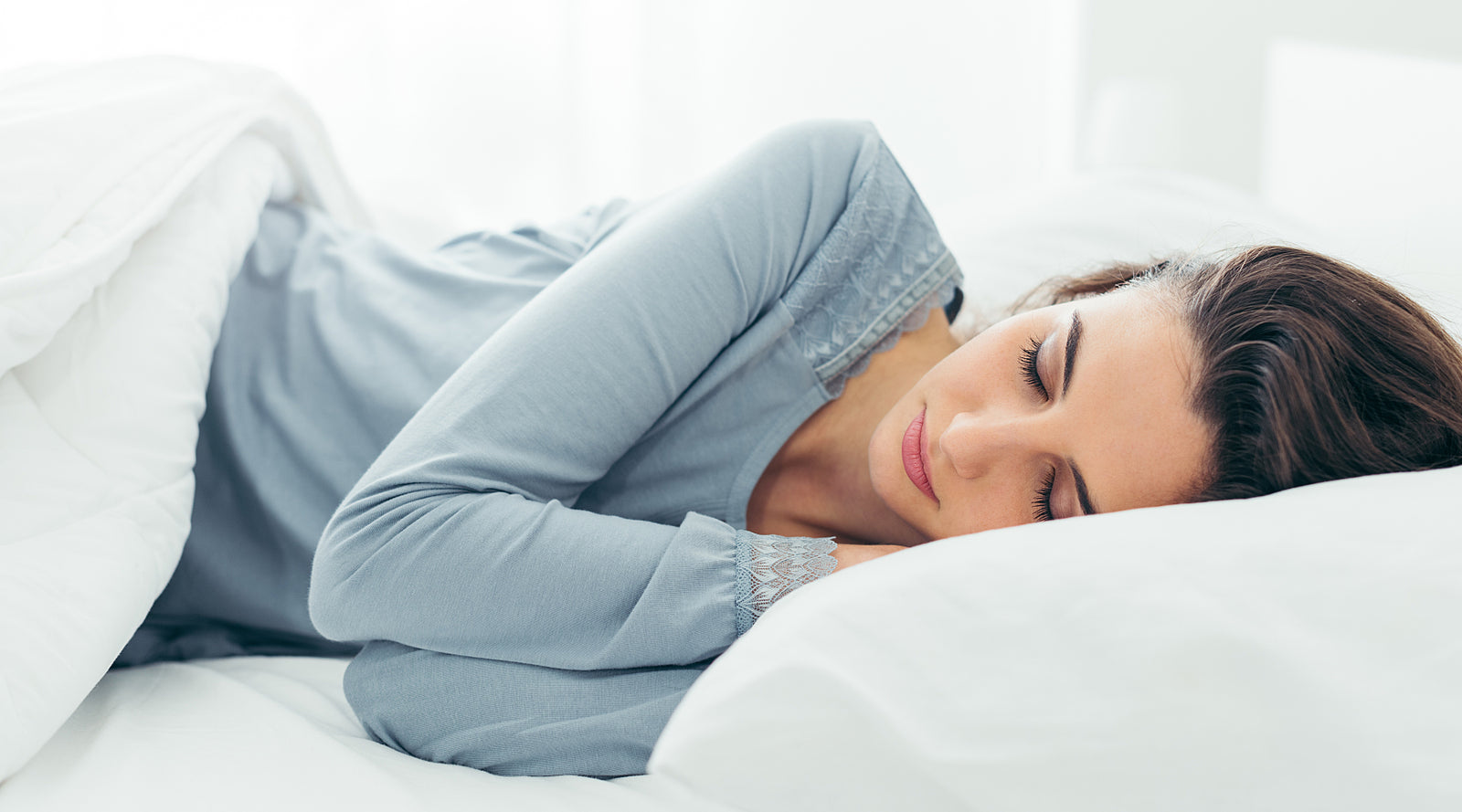Quality sleep isn't always easy to achieve. Poor sleep habits, whether caused by stress or a busy schedule, can exacerbate any anxiousness you're already feeling and throw you into a damaging cycle of poor sleep.
So, how can you break this cycle and get the restful sleep you need? Understanding what good sleep hygiene means so that you can establish an evening routine is essential for a successful slumber.
Poor sleep is linked to a range of health problems, including an increased risk of weight gain or blood sugar imbalance, according to MedlinePlus. It can also poorly affect your mood. Adequate sleep helps boost your immunity, helps you focus and retain more information, and contributes to healthy growth and development in children.
But how much sleep is enough? Experts recommend that the average adult gets between seven to nine hours, teens nine to ten hours, and younger kids need ten or more hours of sleep per day.
Maybe you had a bedtime routine when you were a kid or you have one set up for your own kids. Truth is, you're never too old to establish a bedtime or evening routine. It's one of the best ways to promote sleep hygiene and to be able to fall asleep and stay asleep.
First, choose a bedtime you can stick to every day (or at least most days) of the week. Aim to set a bedtime of 10pm or ideally earlier. From there, plan your night to make sure you're in bed and ready to fall asleep at that time. For the best results, start your evening routine in the afternoon. Below is a sample schedule if you're aiming to get to bed by 10pm.
Avoid caffeine later in the day, especially if you find you are sensitive to stimulants or have trouble sleeping. If you need to rest, take a nap before 3pm. Napping later in the day can interfere with your ability to sleep at night.
While there are always exceptions, after dinner, try not to eat again. Skipping snacking as well as avoiding eating too late can help promote more restful sleep. Your body will always prioritize energy for digestion, so allowing time before bed for your meal to digest means your body can focus its energy on cell repair and rejuvenation as you sleep. Also, limit or avoid alcohol consumption. Although you may think it helps you fall asleep, alcohol prevents your body from achieving the restorative sleep it needs, Cleveland Clinic reports.
Turn off all electronics. You've probably heard by now that blue light from tablets, computers, phones and TV can keep you up at night. Blue light seems to suppress melatonin more than other wavelengths of light and can throw off your circadian rhythm, finds Harvard Medical School.
Find ways to relax and release the tension from the day that you enjoy. This could include meditation, light stretching, reading a book, listening to music or taking a bath.
Turn off the lights. Your body increases the production of melatonin as it starts to get darker, this is the hormone which helps you to sleep. Turn off any artificial lights in your room and close the curtains or blinds to block any other outside lighting. It's also easier to sleep if your room is cool, so turn on a fan or turn down the heat. Then it's time to climb in bed and get cozy. Using bed linen from natural material helps your body to breathe, whereas synthetic materials can make you hot which can wake you up and interrupt your sleep.
Choose a week when you have fewer activities or events that could interfere with your ability to stick to a routine. Then, try implementing your evening routine. It may be an adjustment, and you may have trouble falling asleep at first.
If you continue to struggle to fall asleep or stay asleep there are supplements may help calm your mind and ease you into sleep. Using a supplement at bedtime can support the routine established and promote sleep hygiene going forward.
Adequate, restful sleep is vital to your overall health and well being. Consider your evening routine another important method of self-care.
